Top war movies of all time
Explore the most impactful and critically acclaimed war films that capture the human experience amidst conflict. These movies delve into the realities of battle, sacrifice, and the enduring spirit.
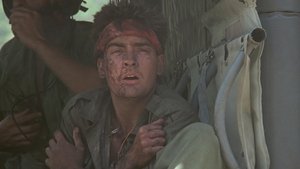

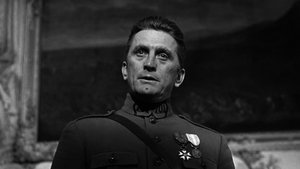
War cinema holds a unique and often challenging place in film history. It's a genre tasked with portraying the brutal realities of conflict, the complexities of human nature under extreme pressure, and the profound costs of battle. The films that resonate most deeply aren't just about explosions and tactics; they are often deeply personal stories, exploring themes of duty, fear, camaraderie, trauma, and the elusive search for meaning in chaos.
From the muddy trenches of World War I in films like Paths of Glory, offering a stark, unflinching look at military bureaucracy and injustice, to the visceral, immediate horror of D-Day depicted in Saving Private Ryan, these movies transport us to different eras and conflicts. They show us the strategic nightmares, the moral dilemmas faced by soldiers and civilians alike, and the psychological toll that lingers long after the fighting stops.
Consider the intense, hallucinatory journey upriver in Apocalypse Now, a film that uses the Vietnam War as a backdrop to explore madness and the breakdown of civilization. Or the quiet, devastating humanism found amidst the horror of the Holocaust in Schindler's List. Each film on a list of great war movies offers a distinct perspective, whether it's the grueling training and dehumanization shown in Full Metal Jacket or the tension of a bomb disposal unit in The Hurt Locker.
The best war films don't glorify conflict; they often serve as powerful, sometimes uncomfortable, reminders of its devastating impact. They challenge us to consider the historical context, the ethical questions, and the enduring human stories that emerge from the crucible of war.
14. Schindler's List (1993)
Steven Spielberg's masterpiece, Schindler's List, is set against the backdrop of World War II and the Holocaust. While war is the context, the film primarily focuses on Oskar Schindler, a German businessman who saved the lives of over a thousand Polish-Jewish refugees by employing them in his factories. Filmed in stark black and white, it's a profoundly moving and essential film about humanity, good, and evil during the darkest of times. Spielberg famously refused a salary for the film, calling it 'blood money,' and instead used profits to establish the Shoah Foundation. It's a film that everyone should see.

13. Braveheart (1995)
Mel Gibson stars and directs this epic historical drama about Scottish warrior William Wallace's rebellion against English rule in the late 13th century. While not a modern war film, Braveheart features massive, brutal battle sequences that are central to its narrative of freedom and sacrifice. Despite its historical inaccuracies, the film captured the popular imagination and won Best Picture. Its sweeping score by James Horner is instantly recognizable, and Gibson's portrayal of Wallace became iconic. It's a stirring tale of defiance and patriotism.
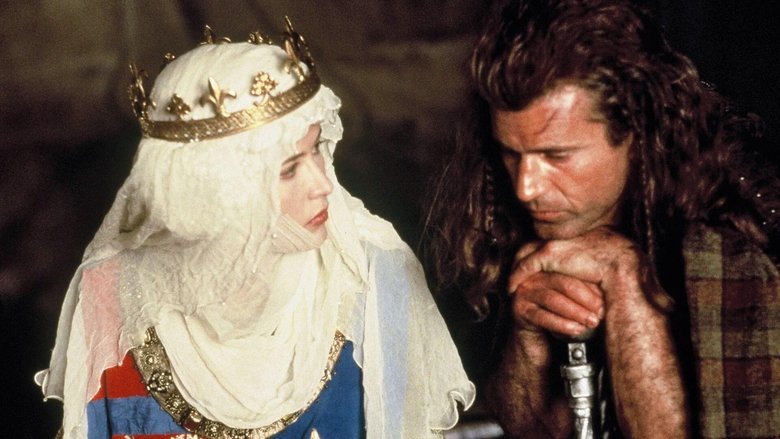
12. Letters from Iwo Jima (2006)
Clint Eastwood's Letters from Iwo Jima offers a rare perspective in Hollywood war films: the Japanese side of the Battle of Iwo Jima. Released shortly after his companion film Flags of Our Fathers (telling the American side), this film is a poignant and tragic look at the soldiers defending the island, based on their actual letters home. It was filmed almost entirely in Japanese and provides a humanizing portrayal of the 'enemy,' exploring their duty, fears, and sacrifices. It's a powerful and necessary part of understanding the full scope of the battle.

11. Fury (2014)
Set in the final weeks of World War II, Fury follows a battle-hardened U.S. tank crew, led by Brad Pitt, as they undertake a deadly mission behind enemy lines. The film provides a gritty, claustrophobic look at the experience of tank warfare, focusing on the bond and tension within the crew. Director David Ayer had the actors undergo intense training, including living on a military base and spending time in a tank together, to build authentic camaraderie and tension. It's a visceral and character-focused war drama.

10. Black Hawk Down (2001)
Ridley Scott's Black Hawk Down depicts the chaotic and ill-fated 1993 U.S. military raid in Mogadishu, Somalia. The film is known for its intense, almost non-stop action sequences and its focus on the sheer confusion and brutality of urban warfare. It boasts a massive ensemble cast portraying the soldiers caught in the conflict. The film strove for historical accuracy in depicting the events, based on Mark Bowden's book. It's a visceral and harrowing account of a specific, tragic moment in military history.
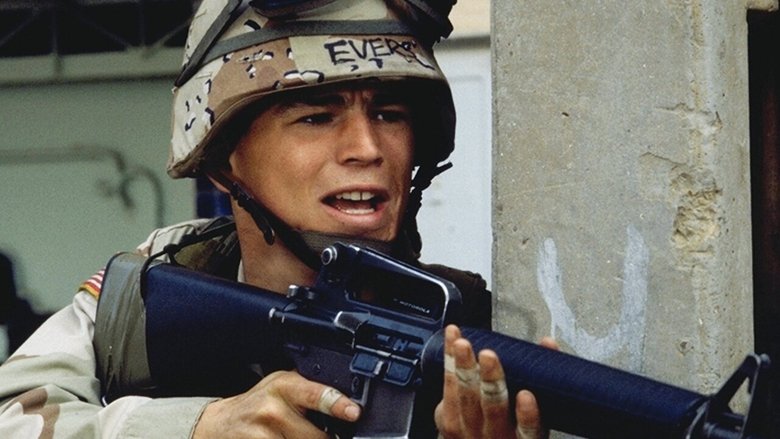
9. The Hurt Locker (2008)
Kathryn Bigelow's The Hurt Locker offers a tense, intimate look at the dangerous work of a U.S. Army Explosive Ordnance Disposal (EOD) team in the Iraq War. The film excels at creating nail-biting suspense during bomb defusal sequences, highlighting the psychological toll and addictive nature of combat for some soldiers. It made history when Kathryn Bigelow became the first woman to win the Academy Award for Best Director, beating out her ex-husband James Cameron's Avatar. It's a gripping, character-driven portrayal of modern warfare.

8. Hacksaw Ridge (2016)
Directed by Mel Gibson, Hacksaw Ridge tells the incredible true story of Desmond Doss, a conscientious objector in World War II who served as a combat medic and, without ever carrying a weapon, saved 75 men during the Battle of Okinawa. Andrew Garfield delivers a powerful performance as Doss. The film contrasts the brutal, visceral depiction of battle with Doss's unwavering faith and courage. Doss was the first conscientious objector to be awarded the Medal of Honor. It's a stirring and inspirational story of conviction in the face of unimaginable violence.
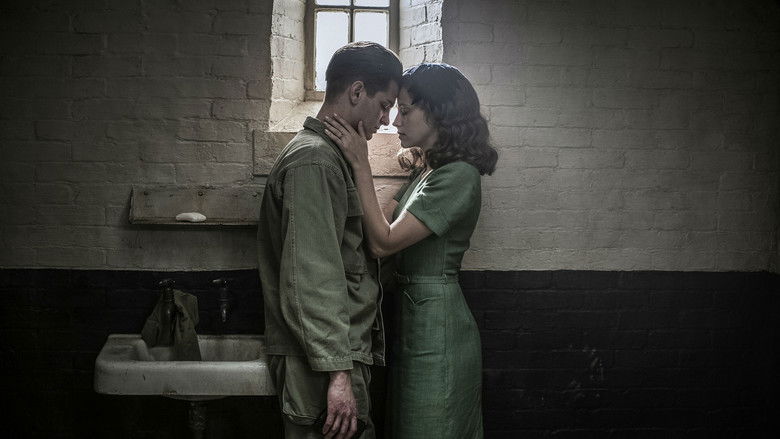
7. Dunkirk (2017)
Christopher Nolan brings his signature non-linear storytelling and practical effects wizardry to the evacuation of Dunkirk in World War II. Told from three perspectives – the land, the sea, and the air – the film masterfully builds tension through its immersive sound design and score by Hans Zimmer, rather than traditional dialogue or character arcs. Many of the extras were the actual age of the soldiers who were evacuated, and Nolan used real destroyers and boats whenever possible. It's a pulse-pounding, large-scale survival thriller that puts you right in the middle of one of history's most desperate moments.
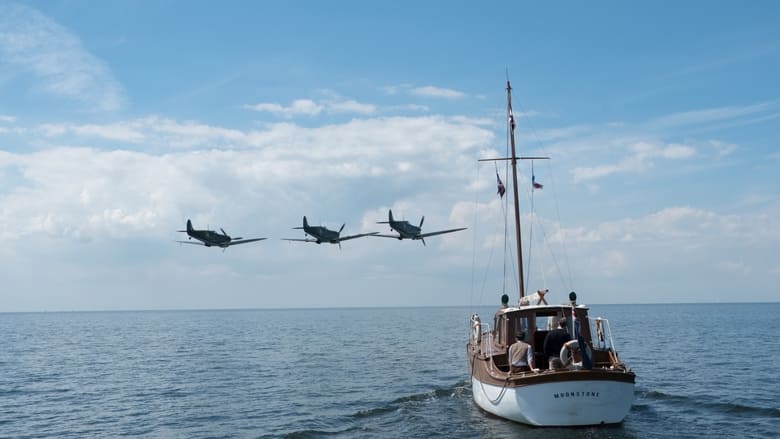
6. The Thin Red Line (1998)
Terrence Malick's return to filmmaking after a long hiatus, The Thin Red Line, offers a poetic and philosophical counterpoint to more action-driven war movies. Set during the Battle of Guadalcanal in World War II, the film is less concerned with plot than with the internal thoughts and existential reflections of the soldiers experiencing the horrors of combat and the beauty of nature intertwined. It features an incredible ensemble cast, many of whom had their roles significantly reduced or cut entirely in the final edit, a testament to Malick's unique, meditative approach. It's a visually stunning and deeply contemplative look at war.

5. Paths of Glory (1957)
Stanley Kubrick appears again on the list with this powerful anti-war film set during World War I. Paths of Glory stars Kirk Douglas as Colonel Dax, who defends his soldiers against a charge of mutiny after they refuse to participate in a suicidal attack. The film is a scathing critique of the arrogance and callousness of military leadership. Upon its release, it was banned in France for nearly 20 years due to its controversial depiction of the French military. Its stark black-and-white cinematography and profound moral questions make it a timeless classic about the injustices faced by the common soldier.

4. Full Metal Jacket (1987)
Leave it to Stanley Kubrick to deliver a war film like no other. Full Metal Jacket is famously split into two distinct parts: the intense, psychologically brutal boot camp led by the unforgettable R. Lee Ermey (a former drill instructor himself, who largely improvised his lines!) and the disorienting, surreal experience of combat in Vietnam. The film explores the dehumanizing process of military training and the absurdities of war with Kubrick's signature detached, clinical eye. Despite being set in Vietnam, the film was famously shot entirely in England, with the exterior scenes of the ruined city painstakingly created from scratch.

3. Platoon (1986)
Oliver Stone's Platoon is deeply personal, drawn from his own experiences as an infantryman in Vietnam. It offers a raw, ground-level view of the conflict, focusing on the moral decay and internal conflict within a single squad. The film's central dynamic between the opposing sergeants, Barnes and Elias (played by Tom Berenger and Willem Dafoe in unforgettable roles), symbolizes the battle for the soul of the American soldier. This was the first Hollywood film about the Vietnam War to win the Academy Award for Best Picture, cementing its status as a seminal work. It's gritty, authentic, and incredibly moving.

2. Saving Private Ryan (1998)
Steven Spielberg redefined the war genre with Saving Private Ryan, particularly with its brutal, unflinching 24-minute opening sequence depicting the D-Day landings on Omaha Beach. The visual and sound design here were revolutionary, aiming to put the audience right into the terrifying chaos of combat. Fun fact: The film deliberately desaturated its colors to give it a look akin to old newsreel footage from the era. Tom Hanks delivers a powerful performance as Captain Miller, leading a diverse squad on a seemingly impossible mission. It's an emotionally resonant and technically brilliant portrayal of the sheer cost of war.

1. Apocalypse Now (1979)
Francis Ford Coppola's Apocalypse Now is less a war film and more a descent into the heart of darkness, using the Vietnam War as a chaotic backdrop. The production itself was famously fraught with challenges – hurricanes, Martin Sheen's heart attack, and Marlon Brando showing up unprepared – making the film's troubled, surreal atmosphere almost a reflection of its making. Did you know that the iconic 'Ride of the Valkyries' helicopter scene was filmed using real helicopters from the Philippine Air Force, which would occasionally have to leave mid-shoot to fight actual rebels? This film is an absolute must-watch for its stunning cinematography, haunting score by Coppola and his father Carmine, and its raw, psychological exploration of war's toll.

